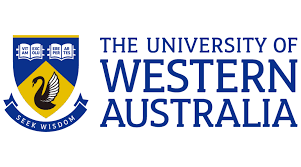University of Western Australia: Boost to deliver better WA healthcare
Researchers from The University of Western Australia have been awarded more than $3 million in State Government funding to advance health innovation, including the development of future bacterial therapeutics, improving the physical health of people with mental illness and implementing clinical communication in Aboriginal health care.
WA State Health Minister Roger Cook announced the WA Near-miss awards to 27 researchers across science, health and medicine to pursue knowledge that could improve the way healthcare is delivered in WA.
The WA Near-miss Awards are granted to emerging researchers who narrowly missed out on State Funding to transform their National Health and Medical Research Council near-miss application into a future grant success.
Dr Ivan Lin from UWA’s Western Australian Centre for Rural Health received a Near-Miss award for his project ‘Yarn with Me’ that aims to implement Clinical Yarning Communication in Aboriginal Health Care.
Clinical yarning is a patient-centred approach that marries Aboriginal cultural communication preferences with biomedical understandings of health and disease to deliver better health care to Aboriginal people.
Dr Lucy Furfaro received the award to investigate potential future therapeutics using bacteriophage biology, a type of therapy becoming increasingly important as bacteria grow more resistant to antibiotics while Assistant Research Professor Anna Waterreus from UWA’s School of Population and Global Health was funded to initiate clinical practice to improve the physical health outcomes of people with severe mental illness.
Four high-potential researchers from UWA and Telethon Kids Institute were awarded Emerging Leaders Fellowships and granted funding for up to 2.5 years.
Dr Fred Kuanfu Chen from UWA’s Centre for Ophthalmology and Visual Science was awarded up to $688,557 to carry out clinical trials focused on preventing blindness from retinal degeneration.
Dr Oyekoya Ayonrinde from UWA’s Medical School was awarded up to $231,208 to determine factors that underpin poor health outcomes related to the progression of non-alcoholic fatty liver disease and abdominal pain from adolescence into adulthood.
Dr Ayonrinde is one of the leaders the cardio-metabolic and liver special interest group in one of the longest-running, successful longitudinal cohort studies in the world – the Raine study.
“Many health problems diagnosed in adults have risk factors that were unknowingly present or developed during childhood or adolescence. This is true for fatty liver, irritable bowel syndrome, type 2 diabetes, and heart disease,” Dr Ayonrinde said.
“Thousands of Western Australians have made research into finding risk factors for various health problems possible, by their dedicated participation in the Raine Study over the last 30 years.”

